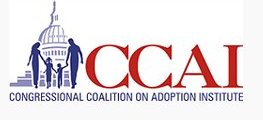
- What is private adoption?
- Private adoption is birth parent(s) placing a child directly with the adoptive parents. It differs from an agency placement in that the legal custody is given directly with the adoptive parents instead of going through an adoption agency. Private adoption allows the parties to have more control over the process. The birth mother, usually during her pregnancy, is able to meet and choose the family she wants to raise her child. The adoptive parents can proceed quickly and have their questions answered about the child’s medical and social background. Private adoption is also called parental placement, direct placement or independent adoption.
- Is private adoption legal?
- Yes! Private adoption is legal in ALL of Virginia, the District of Columbia and in most other states. In Virginia anyone may act as an intermediary and assist in an adoptive placement, but only licensed adoption agencies may collect a fee for intermediary services.
- How are adoption agencies involved in private adoptions?
- Before a court may accept a birth parent’s consent to adoption, a Virginia licensed adoption agency is required to prepare a Home Study Report. A Home Study involves a social worker interviewing and counseling the adoptive family, seeing the adoptive home, and checking criminal and child abuse records. The agency will also counsel the birth parents and usually conduct a joint meeting between the birth parents and adoptive parents. The social worker will obtain detailed family medical and social backgrounds of the birth parents. At a later point in the process, the agency will conduct three post-placement meetings.
- How do you find birth mothers?
- Adoptive parents develop a strategy that encompasses word-of-mouth and advertising. The key is to get your message, “I want to adopt,” to a large audience in a cost effective manner. Proper guidance in developing your strategy can save you time, money and a lot of frustration.
- What expenses can adoptive parents pay?
- In Virginia, adoptive parents can pay for the birth mother’s medical and legal expenses, as well as for certain counseling and transportation costs. Living expenses are paid only if the birth mother’s physician writes a note stating she is unable to support herself due to her pregnancy. Consulting an attorney before making any payments is important because an illegal payment can constitute a felony.
- How are Consent taken?
- Birth mother consents are given in court when the child is in at least the 3rd calendar day of life. A birth father may sign his consent before a notary public either before or after birth. Once a birth parent signs a Virginia Consent, they have seven (7) days from signing to change their mind.
- How many change their mind?
- In our practice, more than 95% of birth mother follows through with their plan to place the child once they meet and give an oral commitment. The occasional change of mind almost always comes in the hospital after birth and tends to be the result of someone pressuring her to keep the child. The first key to a successful adoption is to provide good services to a birth mother including social work counseling where she can really think through her alternatives. If she is not likely to place a child for adoption, we want to weed her out before the family becomes too emotionally and financially involved. The second key is to develop a good support group around the birth mother so that she can focus on her goals, be reassured of her plan and proceed what is best for her and the baby.
- What about meeting the birth mother?
- Almost all modern adoptions involve you meeting the birth mother. In today’s adoption, most families establish a close relationship with the birth mother during her pregnancy and then keep occasional contacts afterwards usually sending pictures and updates. As you get to know the birth mother, you develop a comfort level and a sense of trust and security. Private adoption has grown in popularity because most birth parents and adoptive families find this experience mutually rewarding.
- How do we deal with Birth Fathers?
- Contrary to the impression left by the horror new stories or made for-TV movies, birth fathers are rarely a real problem. Many are still dating or on good terms with the birth mother and will cooperate. Others are anxious to sign away their rights in a denial of paternity. Then there are those birth fathers who are not known or locatable.
The key to a successful adoption is showing respect to the birth fathers and dealing with them early during the pregnancy. We want their cooperation not only to obtain their consent but to also obtain family medical and social histories for the benefit of the child.
Virginia allows us to take a birth father’s Consent of Denial of Paternity prior to the child’s birth and it can be done out-of-court before a Notary Public. Virginia has a Birth Father Registry where we can mail him a notice during the pregnancy and he has 13 days to register with the State or his consent will not be required.
- What does Private Adoption Cost?
- The typical range for a total costs a Virginia private adoption usually costs between $20,000 to $40,000. The facts and needs of the people involved very greatly and some cases the cost are less and other cases the costs are more. The costs of adoption may be offset by the Federal Tax Credit ($15,950 in 2023) where the expenses may be fully credited dollar-for-dollar with your income tax payments.
The fees involved in this typical range for private adoption can consist of adoption agency fees to conduct a home study, perform birth parent counseling, conduct a joint counseling session, write court reports and conduct post-placement supervision; your attorney fees to organized the case and handle it through Virginia’s two court procedure; an attorney for the birth mother; a Guardian ad litem (attorney) for the child; any uninsured medical expenses; advertising; travel; and reasonable living expenses for the birth mother.
- How do I start
- Read Getting Started and then schedule a private consultation with Stanton Phillips. We will discuss your need and interests and help you develop a plan. Our goal is to efficiently lead you through the process for a successful adoption.


